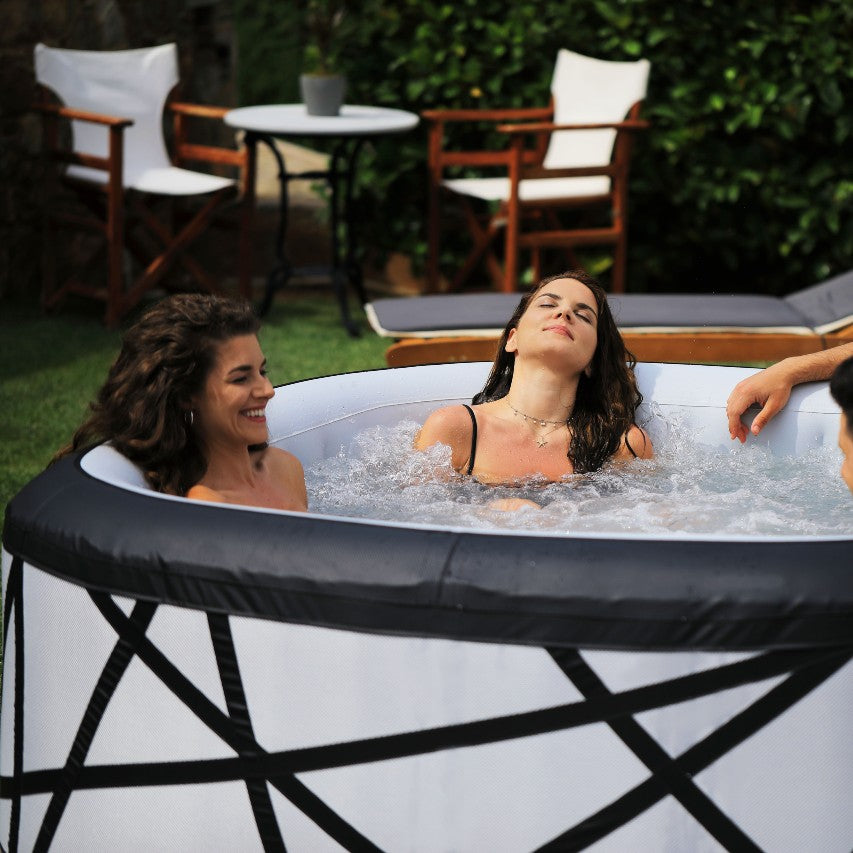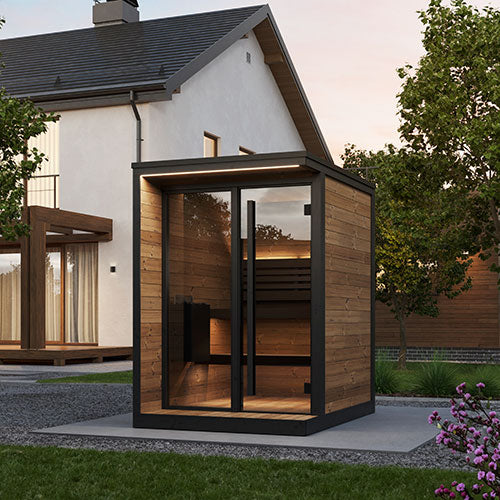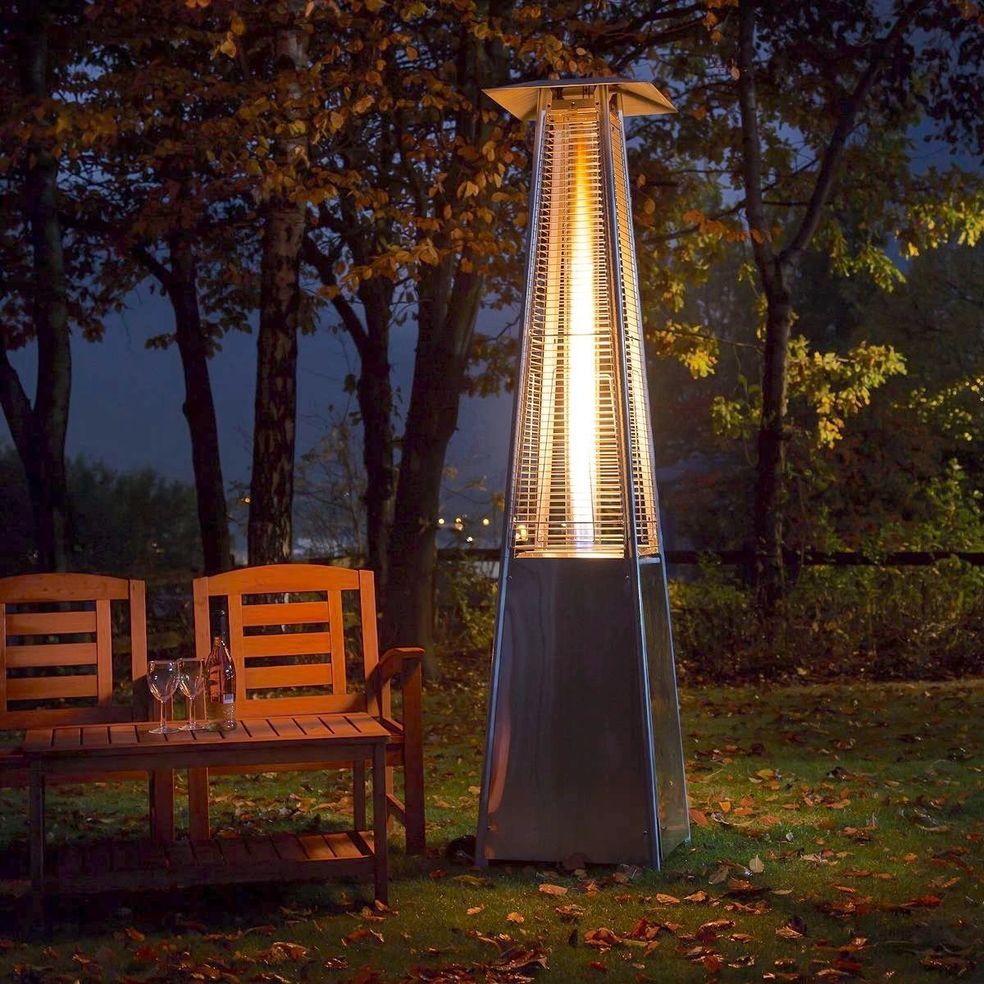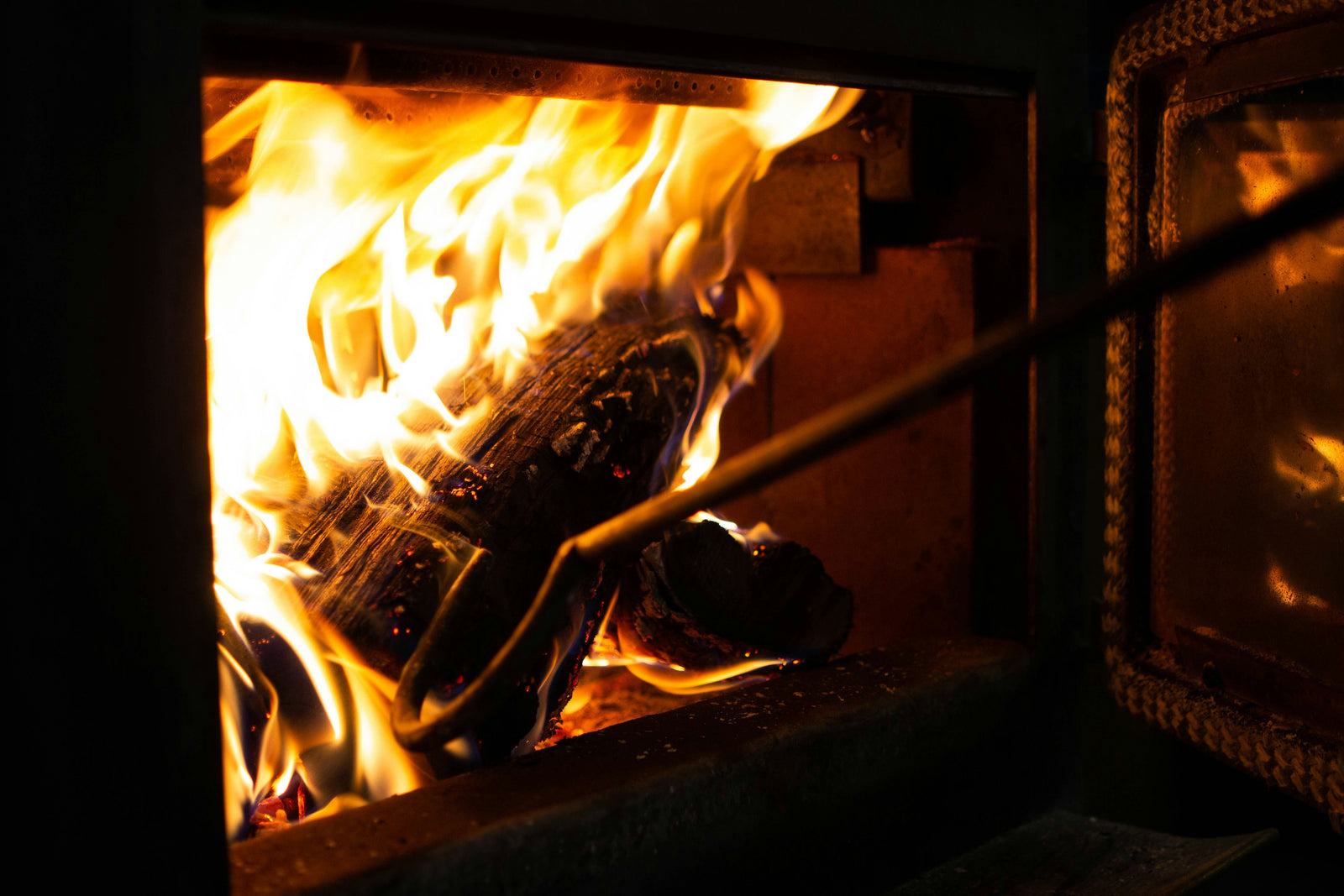Choosing the right pool heating solution is key to maximizing the enjoyment of your outdoor space, allowing you to spend more time in one of your property’s prime features. But should you go with an electric pool heat pump vs gas heater?
While there are many moving parts to consider, we’re here to help you make a clear decision one way or the other based on your budget, climate, pool size, and other factors.
Electric pool heat pumps are lauded for their energy efficiency and lower operating costs, making them ideal for consistent use. However, they typically have a higher upfront cost and require ideal ambient temperature to operate effectively.
Gas heaters, on the other hand, offer rapid heating and perform well in any climate, but tend to cost more over the course of time and have a larger environmental footprint.
We’ll unpack the pros and cons of each below. But if you just came here for an expert recommendation between a gas pool heater vs heat pump, we prefer the pool heat pump for its overall cost-effectiveness, quiet operation, ease of installation, and sustainability.
So - if you’re ready to extend your swimming season with a reliable, efficient heating solution, invest in the pinnacle of pool heating at OutdoorDirect with an AquaCal pool heater! For more insight, use our comparison of the heat pump vs gas pool heater below:
Pros and Cons of Electric Pool Heat Pumps
Electric pool heat pumps are a popular choice for many homeowners, offering an efficient way to extend the swimming season by warming pool water using ambient air.
These units operate by extracting heat from the surrounding air and transferring it to the pool water, making them a more energy-efficient option compared to traditional heating methods.
Pros
- Energy Efficiency: Electric heat pumps are known for their high energy efficiency. They use a small amount of electricity to transfer heat, leveraging the ambient air temperature to warm the pool water. This efficiency can lead to significant savings on energy bills over time.
- Consistent Performance: In moderate to warm climates, heat pumps provide a consistent heating performance. They are designed to maintain a steady pool temperature, ensuring comfortable swimming conditions even when the air temperature drops slightly.
- Eco-Friendly: With no direct emissions of carbon or other pollutants, electric pool heat pumps are a greener alternative to fossil fuel-based heaters. This aspect makes them appealing to environmentally conscious consumers looking to reduce their carbon footprint.
- Longevity: Heat pumps typically have a longer lifespan compared to gas heaters. With proper maintenance, they can last up to 15-20 years, providing a reliable heating solution for many seasons.
- Quiet Operation: Modern electric pool heat pumps operate quietly, minimizing noise pollution and ensuring a peaceful poolside environment.
Cons
- Higher Initial Investment: While the operational pool heat pump cost is lower, the upfront purchase price can be higher than that of a gas heater. If you have a strict budget, though, you can take advantage of our hassle-free payment plans!
- Dependence on Ambient Temperature: Heat pumps are most effective in warmer climates where the ambient air temperature is sufficient to facilitate efficient heat transfer. Their performance can diminish in colder regions making them less suitable for year-round heating in these areas.
- Slower Heating Time: Electric heat pumps take longer to heat the pool water compared to gas heaters. This slower heating rate means planning ahead to ensure the pool is ready when needed. Learn more about how long to heat a pool in our blog.
Who is it Best For?
Electric pool heat pumps are best suited for those who prioritize energy efficiency, environmental sustainability, and long-term savings.
They are ideal for pool owners in climates where the temperature typically remains above 50°F, as they can operate efficiently and cost-effectively in these conditions.
Homeowners who use their pool frequently and seek to minimize ongoing operational costs will benefit greatly from a heat pump. That being said, let’s look at the other half of the pool heat pump vs gas heater debate.
Pros and Cons of Gas Pool Heaters

Gas pool heaters use either natural gas or propane. They burn this fuel to produce heat, efficiently transferring it to the pool, making them especially appealing for users who need rapid temperature increases or live in colder climates where electric heat pumps may fall short of expectations.
Pros
- Rapid Heating: Gas heaters heat the pool water quickly, a significant advantage for those who don’t use their pool regularly and need a quick warm-up before use. This makes gas heaters ideal for environments where the pool is not used daily.
- Performance in Cold Weather: Unlike electric heat pumps, gas pool heaters perform efficiently regardless of the air temperature. This means consistent pool heating even in colder climates or during off-season months.
- Flexibility: These heaters are generally less dependent on climate conditions and can provide a stable heating solution in various environmental settings, offering a level of heating flexibility that is hard to match.
- Lower Initial Cost: The upfront cost of purchasing a gas pool heater is typically lower than that of an electric heat pump, making it an attractive option for those looking to minimize initial investment.
Cons
- Higher Operational Costs: While gas heaters may have a lower purchase price, their operational costs can be higher due to the price of natural gas or propane. This makes them less cost-effective over the long term compared to electric heat pumps.
- Environmental Impact: Gas heaters produce emissions and contribute to a larger carbon footprint. This is an important consideration for environmentally conscious consumers who want to do their part in reducing greenhouse gas emissions.
- Maintenance and Lifespan: Gas heaters often require more frequent maintenance and have a shorter lifespan compared to electric heat pumps, typically around 5-10 years. This shorter operational life and higher maintenance can add to the total cost of ownership.
- Noise Level: Gas heaters can be noisier than electric heat pumps, which could be a drawback for those seeking a quiet, serene poolside atmosphere.
Who is it Best For?
Gas pool heaters are well-suited for pool owners who need quick heating and are less concerned about long-term operational costs or environmental impact.
They are particularly beneficial for those in cooler climates where a heat pump’s efficiency would be compromised, or for users who prefer heating the pool on demand rather than maintaining a consistent temperature. Now, let’s look at the key takeaways between a gas pool heater vs heat pump below…
So, Which is Right for You: An Electric Pool Heat Pump vs Gas Heater?

Hopefully, you already see which of these aligns with your budget, the size of your pool, your climate, and the other factors that differentiate an electric pool heat pump vs gas heater. But just as a reminder, here’s what you should consider:
- Climate: An electric pool heat pump is more efficient and cost-effective if you live in a milder climate with average temperatures above 50°F. Conversely, a gas heater might be the better choice in colder climates where temperatures drop frequently as it will rapidly heat the pool regardless of the air temperature.
- Usage Frequency: A gas heater is ideal for those who use their pool sporadically and need quick heating. Electric heat pumps are better suited for consistent, regular use, maintaining a steady temperature over time.
- Cost Considerations: Gas heaters typically have lower initial costs but higher operational expenses. Electric heat pumps may be more expensive upfront, but they offer lower monthly running costs, making them more economical in the long run.
- Environmental Impact: Electric heat pumps are more environmentally friendly, reducing carbon footprint and supporting sustainability goals. Gas heaters, although efficient in heating, emit greenhouse gases.
- Longevity and Maintenance: Heat pumps usually have a longer lifespan and require less maintenance compared to gas heaters, which may need more frequent servicing and replacement sooner.
Ultimately, if your priorities align with energy efficiency, environmental sustainability, and long-term cost savings, an electric pool heat pump is the better choice.
However, for those needing rapid heating in colder environments or preferring lower upfront costs, a gas heater may be the right fit. We hope this clears up the gas pool heater vs heat pump debate for you!
Invest in the Efficiency of AquaCal Pool Heat Pumps at Outdoor Direct!

If after reading this comparison of the heat pump vs gas pool heater you agree that electric is the way to go, there’s just one thing left to do today - invest in the best pool heat pump at Outdoor Direct!
Still not sure which heat pump is right for you?
Why Shop With Us?
Our passion lies in enhancing your time spent outdoors - whether relaxing by yourself or making memories with loved ones. That’s why we’ve curated the best selection of AquaCal heat pumps, renowned for their performance and reliability since 1981.
This leading brand has earned the trust of millions of pool owners through innovative heating solutions that stand the test of time. The company offers unparalleled 7-year warranties and exceptional customer support should your unit need to be serviced.
There are two different series you have at your disposal. The AquaCal HeatWave SuperQuiet Heat Pump is designed for those who seek the pinnacle of efficiency and quiet operation, featuring patented ThermoLink Titanium Heat Exchangers for durable and efficient heat transfer.
The unique Air Flow Vectoring Top (AquaTop) protects the unit while ensuring maximum efficiency. BTUs range from 110k to 143k, with COP ratings as high as 7.1.
The AquaCal TropiCal Heat Pump, on the other hand, is ideal for those in search of a cost-effective, reliable heating solution. With high-performance titanium heat exchangers and corrosion-resistant cabinets, these heat pumps provide durable and consistent heating at a more affordable price point. BTUs range from 52k to 132k with COP ratings up to 6.8.
But it’s not just about the high-quality AquaCal chiller and heater models we stock - we also offer a world-class customer experience every step of the way. You can take advantage of our price-matching policy to secure the lowest cost, and we’ll even ship your order free. We’ll even help you choose the right heating solution below!
Tips on Choosing the Right Pool Heat Pump
We make it easier than ever to pick the perfect pool heat pump with our simple survey. Plus, our customer service team is a click or call away ready to talk over your needs and offer a personalized recommendation. Here’s a general overview of choosing the right solution:
- Pool Size: Ensure the heat pump's capacity matches your pool's volume. Larger pools require units with higher BTU ratings to efficiently heat the water. Our guide on pool heat pump sizing will help you navigate this.
- Climate: The TropiCal series is a cost-effective and efficient choice for those in milder climates with lower heating needs. If you live in a colder area or need the highest efficiency, consider the HeatWave SuperQuiet series.
- Budget: While both series offer long-term savings, initial investment and operational costs can differ. The TropiCal series is more budget-friendly upfront, while HeatWave SuperQuiet provides premium efficiency and quieter operation.
- Features: Consider additional features like the PoolSync Ready system, which offers the convenience of controlling your heat pump from your smartphone. You should also consider your desire for peace and quiet - as the name suggests, the HeatWave SuperQuiet is virtually silent.
Whether you need a small pool heat pump or commercial pool heat pump, an above-ground pool heat pump, or a pool heater chiller combo, OutdoorDirect has the ideal solution waiting for you in our catalog. So, take a look around or request a recommendation today!
Bringing Our Comparison of the Heat Pump vs Gas Pool Heater to a Close
In choosing between an electric pool heat pump vs gas heater, you should consider efficiency, climate adaptability, and long-term costs.
Heat pumps, particularly AquaCal’s HeatWave SuperQuiet and TropiCal series, stand out for their energy efficiency, lower environmental impact, and sustained performance. Gas heaters offer quick heat but at a higher operational cost and environmental toll.
For a balance of eco-friendliness, cost-efficiency, and reliable pool heating, electric heat pumps are the superior choice. Remember, though, you need the best brand and model to ensure you’re reaping the benefits this style has to offer, and that’s AquaCal.
We compared the AquaCal vs Hayward heat pump and AquaCal vs Pentair heat pump if you want to learn more about what makes this the #1 solution on the market. But why not find out for yourself what a difference these heat pumps can make in your backyard enjoyment?
Your ideal swimming experience is just a click away at Outdoor Direct - take the first step towards heating your pool efficiently today!
Still not sure which heat pump is right for you?








